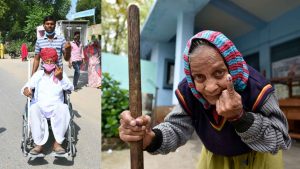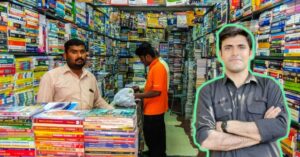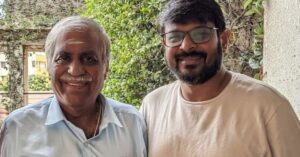Jharkhand Teacher’s Brilliant Initiative Has Kids Teaching Their Parents & Grandparents
Dr Sapan Patralekh's unrelenting dedication to education has increased the number of children studying in the village school in Jharkhand while also educating its elders.
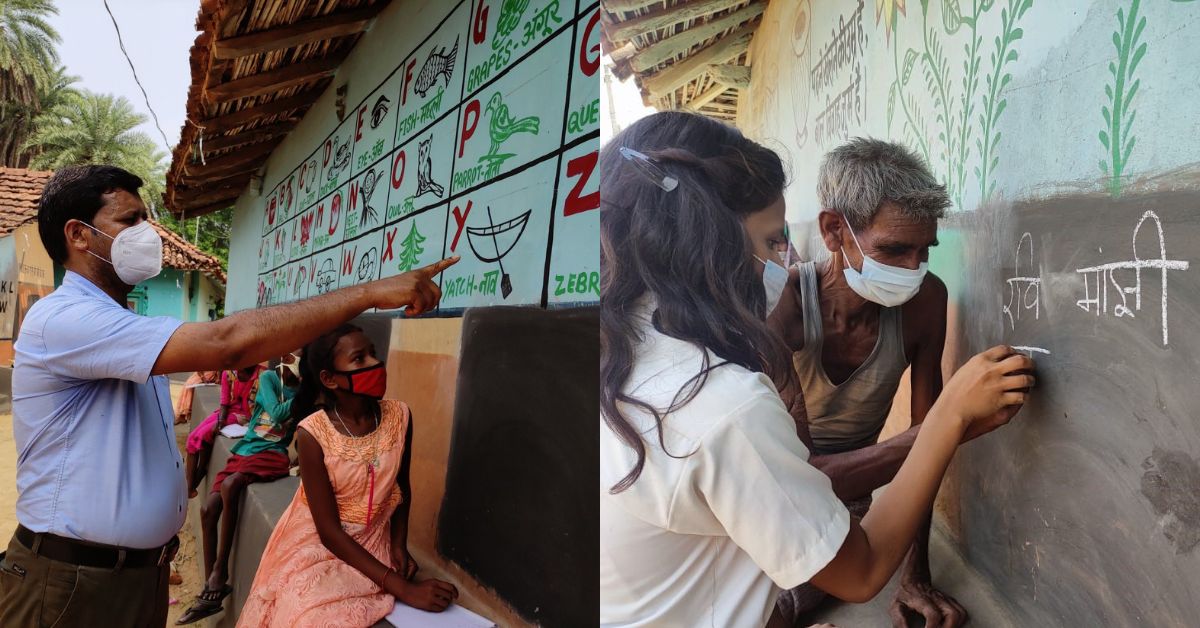
Growing up in a poor family, Dr Sapan Patralekh realised the importance of education at a young age. Due to his father’s death, he had to stay in a friend’s house in a nearby village in Bihar for his studies. He had very little money at the time, nevertheless, he ensured that he studied well and completed his Doctorate in Hindi.
The 44-year-old became a teacher in 2004 and says his focus was always on educating as many children as possible. Since 2015, he has been the principal at the Dumarthar Utrkramit Madhya Vidyalaya (Upgraded Middle school) in Dumka, Jharkhand. But it was in 2020, when the country was under lockdown, that Sapan spent sleepless nights thinking of how he would teach his students who didn’t have smartphones.
“I was very worried, as it had taken a lot of effort to get these children to school. I was scared that these children would drop out, get married, or worse – go to work. That’s when we set up blackboards on the outside of the mud houses. We were able to continue each child’s education from 2020 to 2022,” says Sapan.
It was this thought that led to an entire village full of blackboards.
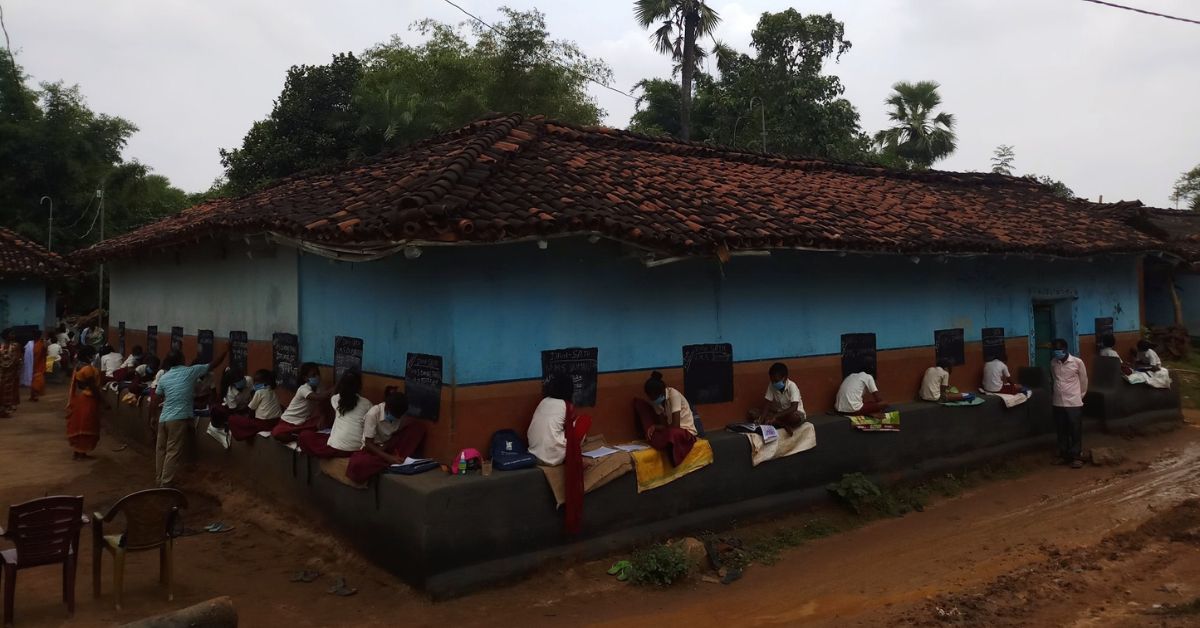
Four teachers, including the principal, took charge of four different areas and divided the students amongst themselves. They used a loudspeaker to maintain social distancing. Children would solve assignments on the blackboard, and each child had a blackboard, chalk and duster for themselves. Children would also write their doubts on the blackboard, which the teachers would address.
“We maintained social distancing, wore masks, and used sanitisers. I’m glad this blackboard teaching model worked for these children and their education remained uninterrupted,” says Sapan.
‘Educating our elders’
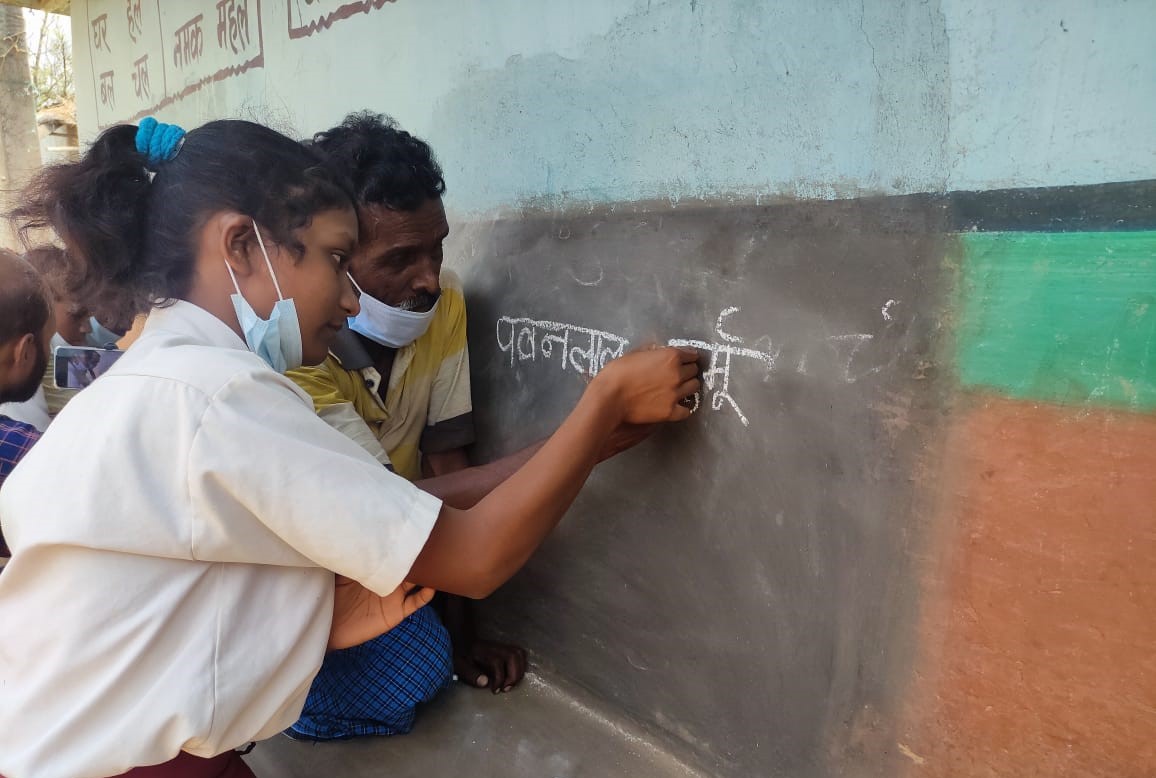
When schools opened in February 2022, Sapan started thinking of how to utilise these blackboards that were spread across Dumarthar village – a tribal village, in which most people are involved in manual labour or farming.
“My idea was to use these blackboards even after students started coming to school. In the past two years, as we took the class at every child’s doorstep, I became well acquainted with the elders in the house too. I wanted to educate them to make them realise the importance of education,” says Sapan.
Sapan surveyed 80 houses in the village to find that of the 430 residents above the age of 18, 138 weren’t literate.
In the next Bal Sansad (child cabinet), Sapan asked the children if they were interested in educating their parents and grandparents. The overwhelming response was ‘yes’. After asking the elders too if they were ready to learn, Sapan put a plan in motion.
The children would teach their elders to write on the blackboards, whenever they had time.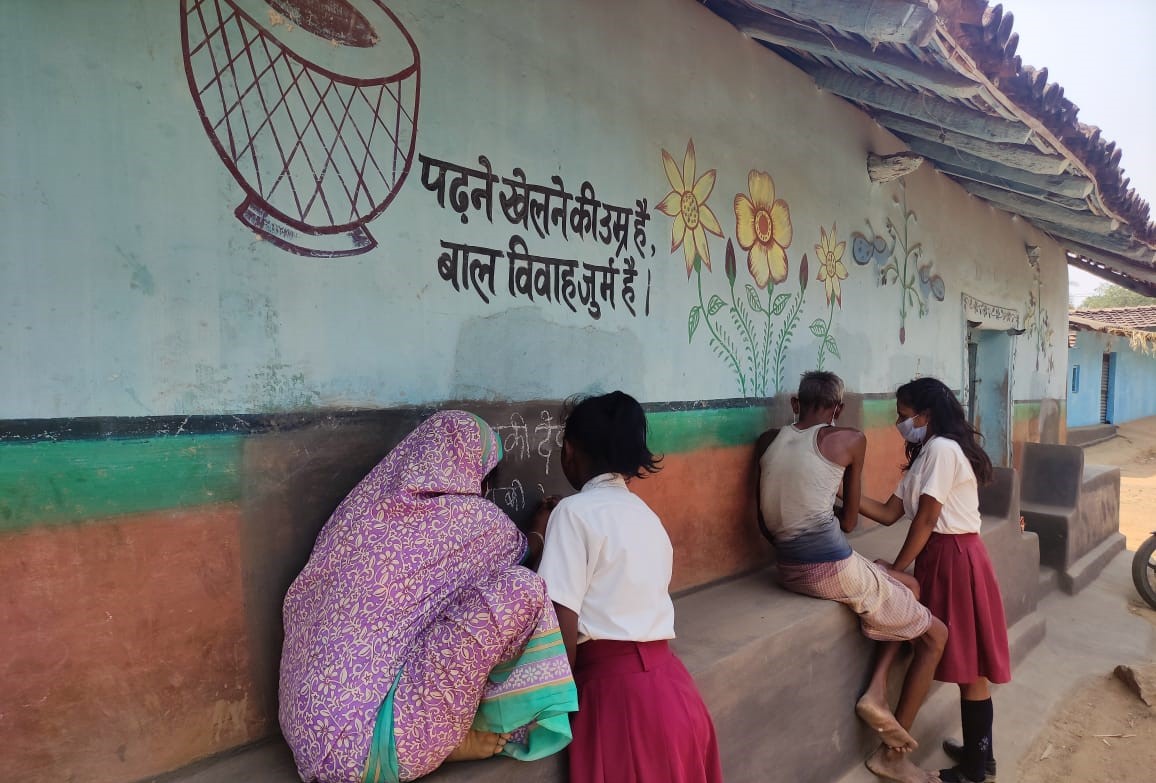
This could be after school when their parents returned home or on Sundays. Since March, they have been teaching them to write their names, their village name, and how to read and join letters together to form small words.
“Most of the children are first-generation learners. In a city, parents very proudly come to drop their children at school. In this village, it’s not like that. I first worked on improving the enrolment at the school. When I joined in 2015, there were less than 200 children. Today, there are more than 300 in our school. Now, my objective is to make these parents realise the importance of education so that they too drop their children off proudly,” says Sapan.
He opines that only when elders realise the importance of education, will they not drag their children to work or marry them off early. Many of Sapan’s students are now enrolled in colleges too.
“See, by teaching them basic words and letters, they won’t get a degree. But they will learn. Education is lifelong. If they are interested in learning more, we are always there to help them. Education is the only way to move ahead in life,” says Sapan.
Sapan also learned the local language ‘Santhali’ in the past two years to teach the elders numbers, letters and words.
Pawan Lal Murmu, the ward councillor of Dumarthar village, and his wife are examples of the newly enrolled pupils in this village school set-up. Another villager Ravi Manji, told The New Indian Express, “It’s a proud moment for all of us that our grandchildren are making us literate.”
‘Education is the biggest weapon to eradicate poverty.’
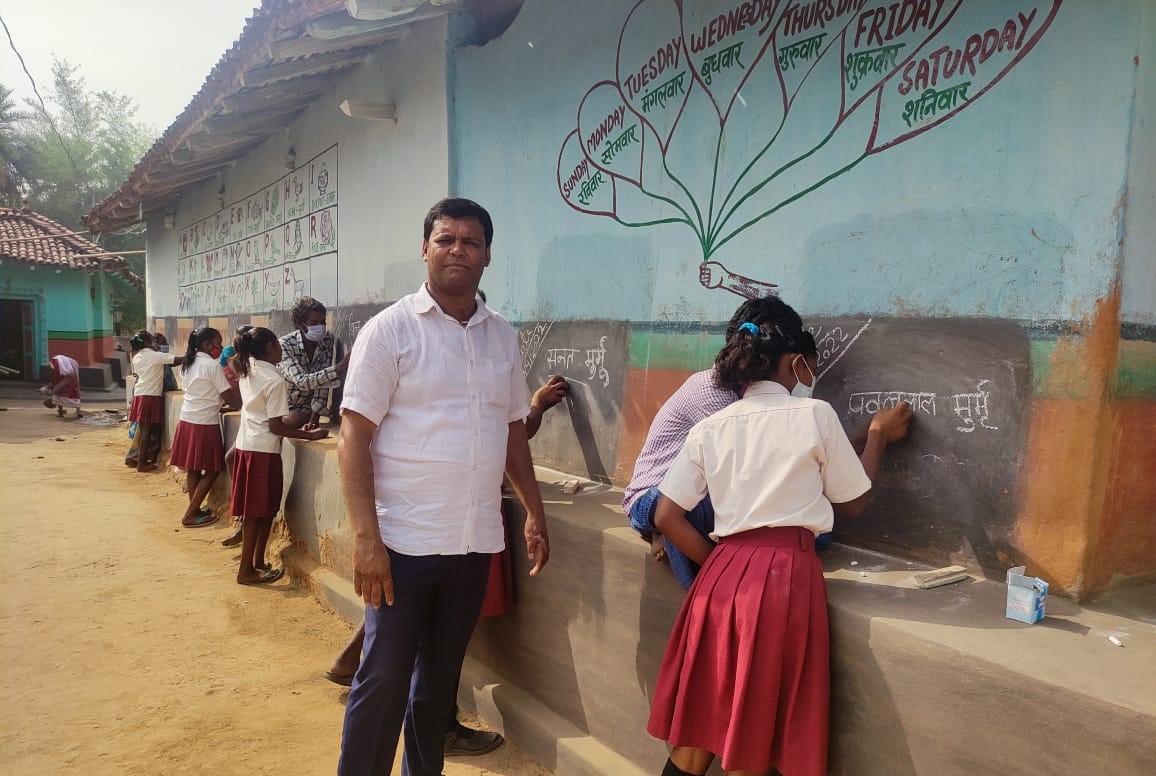
His next focus is on educating children under the age of six, as Dumarthar doesn’t have an Anganwadi, and the school admits children from the age of six. To ensure that children know basic numbers and letters when they come to school, Sapan has written them all over the blackboards and electrical poles in the village, in Hindi, Santhali, and English.
“As per the Nipun Bharat mission, every child in the country should have universal foundational literacy and numeracy (FLN) by the end of primary school by 2025. To achieve this, basics need to be taught from the age of three or four. Since there is no Anganwadi, I have written the basics across the village, hoping that children, as well as their parents and grandparents, read and learn. I want the child to know basics when he enters school on day one of class 1,” says Sapan.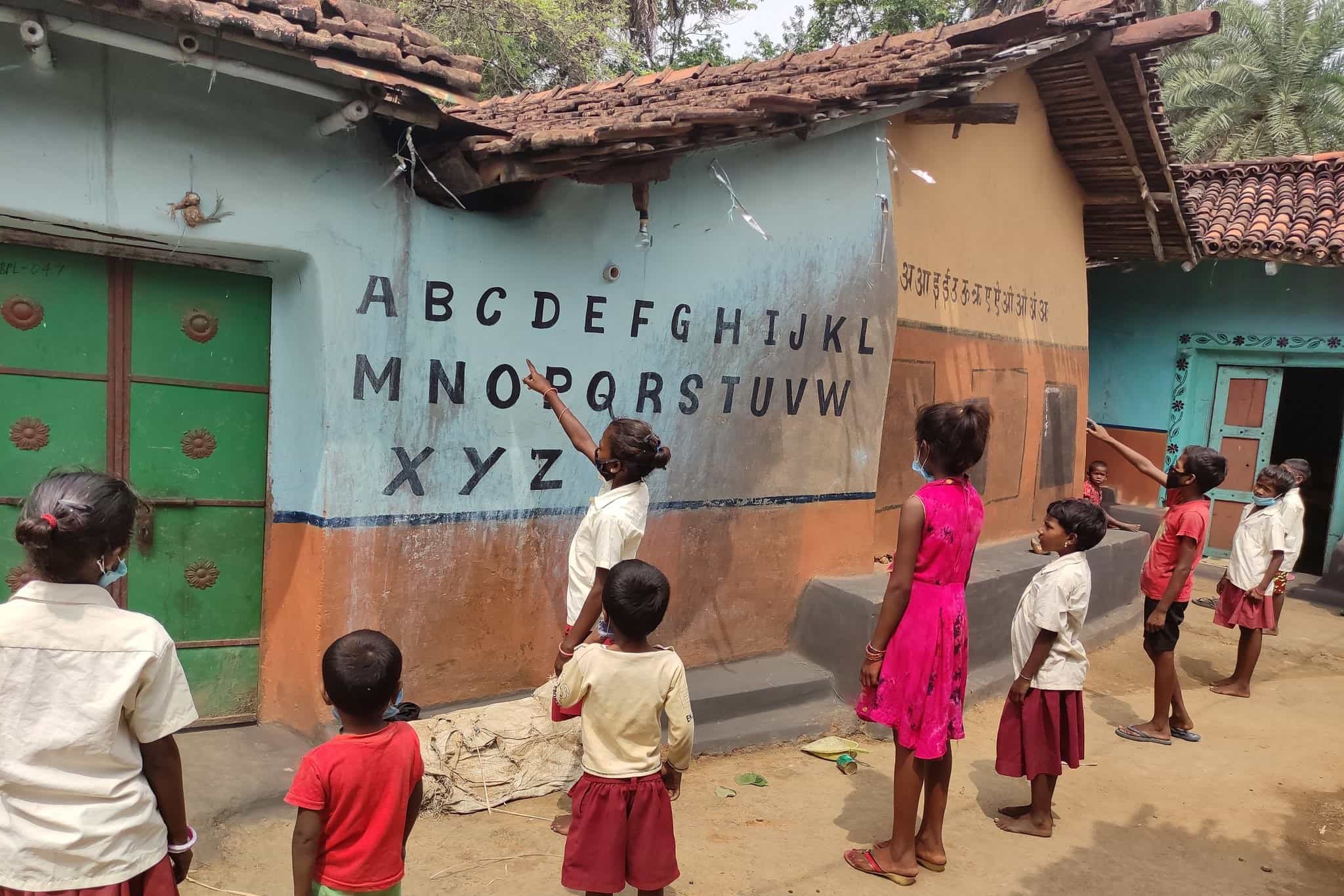
The school and its principal have received several accolades for their efforts. Prime Minister Narendra Modi hailed this initiative in his Mann ki Baat in January 2021, Osaka University in Japan appreciated the blackboard model. The school is also getting a Swachh Vidyalaya award on this Teacher’s Day for being the cleanest in the Dumka district.
Sapan says he is the richest man in the world. “Every time I teach a student, I feel like the happiest and richest man in the world. For there is nothing as fruitful as educating someone. Education is the biggest weapon to eradicate poverty. I have experienced that in my life,” says Sapan.
Sources
‘Rural teacher guides kids to teach grandparents’ by Mukesh Ranjan for The New Indian Express, Published on 23 August, 2022
Edited by Yoshita Rao
This story made me
- 97
- 121
- 89
- 167
Tell Us More
We bring stories straight from the heart of India, to inspire millions and create a wave of impact. Our positive movement is growing bigger everyday, and we would love for you to join it.
Please contribute whatever you can, every little penny helps our team in bringing you more stories that support dreams and spread hope.






